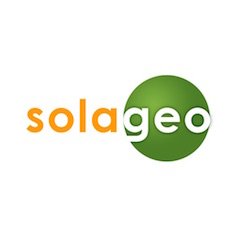Solageo
Deliverables
Franchisee Qualification Questionnaire and Evaluation Criteria Rubric. We created a questionnaire and a matched evaluation rubric to assess potential franchisees in several aspects. We weighted each aspect based on their significance in the evaluation criteria rubric.
Willingness-to-Pay Analysis and Business Model Recommendation. We analyzed end users’ valuing of safe water in Kageyo, Rwanda and examined if these values aligned with the potential cost models. We provided recommendations about the determinants of the business models’ success based on reported water consumption behaviors and attitudes toward safe water.
Mission
Develop tools that allow social entrepreneurs in Africa to deliver solar-powered safe water access.
Challenge
Evaluate the best-fit franchise model and establish end users’ willingness to pay for safe water to align cost structure and determine profitability.
Research Activities
We analyzed Solageo’s B2B model and the product features of the Better Water Maker. After generating franchisee evaluation criteria, we developed an evaluation rubric for franchisee qualification, a franchisee interview schedule to evaluate knowledge and expertise, and a questionnaire paired with the evaluation rubric. We designed a survey to quantify customer behaviors, understand attitudes toward water use, and evaluate financial constraints related to water consumption that we deployed in Kayego, Rwanda with the help of researchers in the field from the University of Rwanda and Heifer International.
Key Findings
- Many individuals in Rwanda and Uganda drink untreated water due to the convenience and availability. There is a widespread belief that underground water is safe, and many community members do not recognize the harmful bacteria and microbes in untreated water or the risks associated with them.
- There is a strong demand for safe water but the setup cost exceeds residents’ willingness to pay. 100% of the respondents are willing to buy treated water if they have consistent reliable access in their community.
- Close relationships between communities and local enterprises builds confidence in the enterprises in the upper parts of the supply chain. The enterprises that are higher on the supply chain are more willing to cooperate with local enterprises when there is consistent outreach and deep trust within the community thanks to their local knowledge of the communities.
- A deep understanding of the community enables entrepreneurial creativity to provide an optimal solution. Tailoring the water treatment service and the operating model to fit the needs of franchisees will better serve the community.

